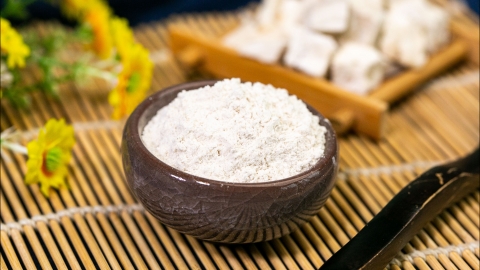Can patients with hypothyroidism eat kudzu root powder?
Generally speaking, hypothyroidism refers to an underactive thyroid. Patients with hypothyroidism can consume kudzu root starch, but should do so in moderation. Detailed analysis is as follows:

Kudzu root starch contains flavonoids such as puerarin and soybean isoflavone glycosides, which help dilate the coronary arteries, improve myocardial ischemia and hypoxia, and may assist in lowering blood pressure and blood sugar levels. Its fever-reducing and irritability-relieving properties can help alleviate symptoms such as irritability and anxiety caused by abnormal hormone levels in patients with hypothyroidism.
However, it should be consumed in moderation. Kudzu root starch is cooling in nature, and excessive consumption may cause gastrointestinal discomfort such as abdominal pain and diarrhea. During consumption, alcohol, coffee, strong tea, chili peppers, and other spicy or hot-natured foods should be avoided, as they may interfere with the efficacy of medication or worsen symptoms. Kudzu root starch can only assist in alleviating symptoms; patients with hypothyroidism still need to follow medical advice to take medications such as levothyroxine sodium tablets and undergo regular thyroid function tests.
Patients with hypothyroidism should maintain a light diet in daily life, reduce high-iodine foods such as nori and kelp, and avoid increasing the burden on the thyroid gland. Sufficient rest and adequate sleep are essential, avoiding late nights, which can help in the recovery from the condition.






